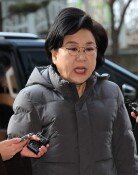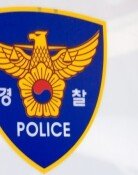[Editorial] Despite Another Suicide, Wiretap Investigation Must Continue
[Editorial] Despite Another Suicide, Wiretap Investigation Must Continue
Posted November. 22, 2005 08:34,
Former deputy director of the National Intelligence Service (NIS), Lee Su-il, who was investigated three times by the prosecution for his involvement in the NIS wiretapping case, committed suicide.
As of now, it is unclear whether there is any correlation between the investigations of the prosecution and Lees suicide. It is risky to jump to a conclusion that the prosecutions investigations went too far, as personalities and the psychological status of those who commit suicides also are deeply related to suicide.
The Supreme Public Prosecutors Offices fact-finding mission should leave no stone unturned to find out whether there were any forceful interrogations. It would be better if those outside of the prosecution take part in the fact finding mission for the sake of fairness and objectiveness.
It is sad that Lee committed suicide, but the ongoing wiretapping investigations should not be affected by Lees suicide. Wiretapping has been a deep-seated problem since the inception of the Central Intelligence Agency (the predecessor to the NIS) during the Third Republic. One administration after another engaged in this practice. And the fact that not only military dictators but also democratically-elected presidents failed to eliminate wiretapping demonstrates that fresh intelligence gained through wiretapping is a near-irresistible temptation. Thats the reason why the deeply entrenched wiretapping practices of the NIS cannot be stamped out unless there are thorough investigations backed by painful punishment.
No matter how justifiable the purposes of the investigations are, however, the human rights of those under investigation must also be respected. Last year, chairman of Hyundai Asan, Chung Mong-hun, killed himself after being investigated by the prosecution. Busan Metropolitan City mayor Ahn Sang-young, Southern Jeolla Province governor Park Tae-young, and Paju City mayor Lee Jun-won followed suit after being interrogated by the prosecution.
In response to their suicides, senior officials of the Justice Ministry and the prosecution have emphatically talked about the importance of respecting suspects dignity during investigations at every opportunity.
Nonetheless, another suicide has occurred, and the prosecution cannot disclaim partial responsibility for it.
While the wiretapping investigations should be pushed ahead with unwaveringly, parallel efforts should be made to find out the truth about Lees suicide and to explore ways to improve the investigation methods of the prosecution. Politicians should refrain from making remarks intended to use Lees death or investigations on wiretapping to their political advantage. Former President Kim Dae-jung told former National Assemblyman Park Ju-seon who called on him recently, It is not right for the prosecution to arrest those who caught communists while tolerating the person who said that the Korean War was a reunification war. What Kim has to do is not to complain about the wiretapping investigations, but to apologize to the public for wiretapping conducted by the NIS when he was a president who respects human rights.







